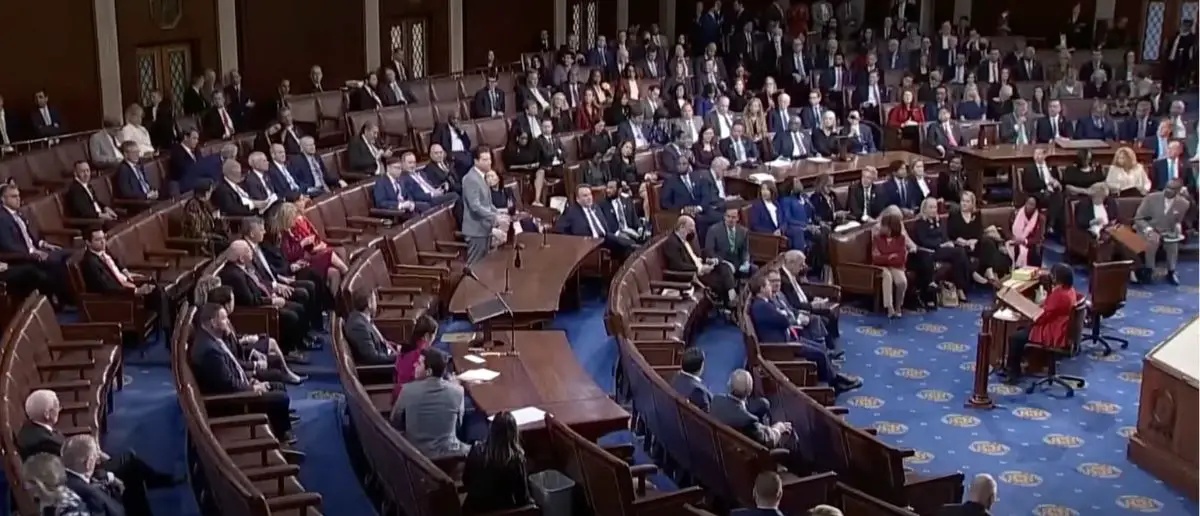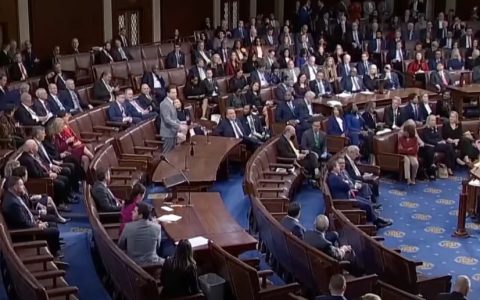
The courts have immense power. Just one ruling can change America forever.
And now another groundbreaking Supreme Court ruling has been handed down.
Missouri Court Upholds Law Protecting Minors from Gender-Transition Treatments
In a landmark ruling on Monday, a Missouri court upheld a state law that bans gender-transition surgeries and treatments — including hormones and puberty blockers — for minors. This decision comes just days before the U.S. Supreme Court is set to consider a similar case, marking a critical moment in the ongoing legal battle over the regulation of transgender healthcare for children.
Judge’s Ruling: A Win for Child Protection
Judge R. Craig Carter, who serves on the 44th Judicial Circuit Court of Missouri, ruled in favor of the state, agreeing with the argument that there is insufficient medical consensus regarding the safety and effectiveness of gender-transition treatments for minors. Citing a 2007 Supreme Court ruling, Carter reinforced the idea that state and federal legislatures have the authority to pass laws in areas of medical and scientific uncertainty, such as this one.
The judge’s ruling emphasized the need for caution in light of the unsettled nature of medical ethics surrounding the treatment of gender dysphoria in children. While some medical organizations, such as the American Academy of Pediatrics, advocate for gender-affirming care, others — like the American College of Pediatricians — oppose it, particularly for minors. Carter’s decision reflects the concerns of many who question the long-term impacts of these treatments on young, developing individuals.
“The evidence from trial showed that the medical ethics of gender dysphoria treatment for children and adolescents are entirely unsettled,” Carter wrote. “Any person—including a minor—would be able to obtain anything from meth, to ecstasy to abortion so long as a single medical professional were willing to recommend it.”
NEWS: Missouri has prevailed in lawsuit over state's ban of pediatric gender-transition treatment
The state's ban, which was prompted by Jamie Reed's whistle blowing at the Wash U pediatric gender clinic, will stand.
On Dec. 4, SCOTUS will hear the case over Tennessee's ban.… pic.twitter.com/Z1oi93xVbb
— Benjamin Ryan (@benryanwriter) November 25, 2024
Supporters Celebrate the Decision
The ruling has been hailed as a victory for those advocating for greater protections for children. Republican Attorney General Andrew Bailey, who defended the law in court, expressed pride in the decision. “I’m extremely proud of the thousands of hours my office put in to shine a light on the lack of evidence supporting these irreversible procedures,” he said in a statement. “We will never stop fighting to ensure Missouri is the safest state in the nation for children.”
The decision makes Missouri the first state to successfully defend such a law at the trial court level, setting a precedent for other states that have introduced similar measures. For many, the ruling represents a step toward ensuring that minors are not subjected to irreversible medical procedures without clear, unanimous medical support.
The law at the heart of the ruling, Missouri Senate Bill 49, was signed by Governor Mike Parson in June 2023. It limits access to gender-affirming surgeries and medications for children and teenagers under 18, unless they were already undergoing such treatments before August 2023. The law also imposes strict penalties on healthcare providers who violate its provisions, including the potential revocation of medical licenses and lawsuits.
Governor Parson has argued that the law is necessary to protect children from potentially harmful treatments they may not fully understand. The ruling validates Missouri’s commitment to safeguarding minors by placing limits on irreversible procedures that could have lasting consequences.
Missouri’s decision aligns with the actions of at least 26 other states that have either passed or proposed laws restricting gender-affirming treatments for minors. These measures reflect a growing concern among lawmakers, parents, and medical professionals about the risks of transitioning children at a young age.
The ruling also comes at a crucial time, with the U.S. Supreme Court preparing to hear oral arguments in U.S. v. Skrmetti on December 4. This case involves Tennessee’s ban on treatments allowing minors to transition to a gender inconsistent with their assigned s*x at birth. The Supreme Court will consider whether Tennessee’s law violates the Equal Protection Clause of the 14th Amendment, and its outcome could have far-reaching implications for similar laws across the nation.
The Missouri ruling is a clear indication that lawmakers and courts are increasingly focused on protecting children from potentially irreversible medical decisions. It underscores a growing movement to ensure that minors are not exposed to treatments that lack a clear, unified medical consensus. As the legal landscape continues to evolve, this decision is a crucial step toward ensuring that children’s welfare remains the top priority in discussions about gender-affirming care.
With President-elect Donald Trump pledging to pursue federal legislation to restrict gender-affirming treatments for minors, the Missouri ruling represents a key victory in the broader effort to protect children from controversial medical procedures. This ruling sets the stage for further discussions and potential future victories for those advocating for more oversight and caution in the treatment of minors with gender dysphoria.
Stay tuned to the DC Daily Journal.





